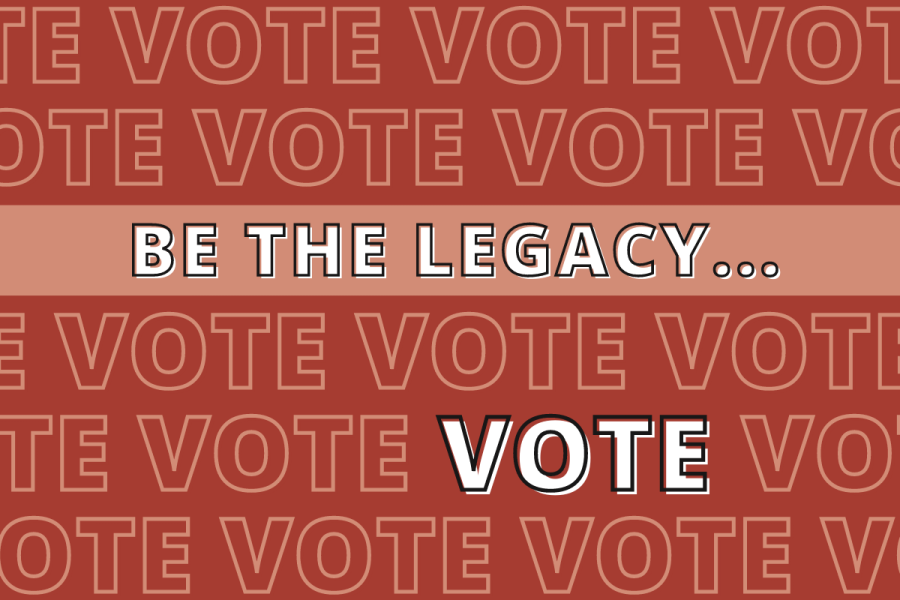Shaping our Legacy
Retrospects and outlooks of the district’s 2021-2022 academic year
Illustration by Cameron Samuels
The Katy ISD Board of Trustees election will be held on May 7.
Early voting has ended for our district’s Board of Trustees election, and the divisiveness of political rhetoric and the problems students face have only heightened during recent weeks.
This year could be defined as one of division and a hostile battle for power, but students reject this bitterness and seek to regain what education should be – a support system for students where they are at the center of decision-making and not left out of discussions of policy that directly affects them.
New Beginnings from a Global Pandemic
The district held a special school board meeting in August ahead of the first day of school. The topic: response to the COVID-19 pandemic. The attendance: a packed room and more than 40 speakers slated to address the board.
When each speaker approached the lectern, it could already be determined whether they supported mask wearing in schools based on whether they were wearing one themselves.
The superintendent and board members listened attentively as three-minute speeches progressed as two sides tried pulling the board in opposing directions.
It appeared that both halves of the room were upset, with middle ground apparently undesired. The one overlooked detail was startling to go unnoticed: there was only a single student who spoke.
This political division aggressively set the year in play as policy making became a pernicious game where students were the pawns.
Stories Left Untold, Voices Left Unheard
“It never really occurred to me that people see school as their one safe place or they see school as the way to really be themselves,” senior Rania Zoya Shaik said. “It makes sense, but when you put it into perspective, it’s hard to think that people don’t have an avenue to seek help or find safety or confide in others.
While browsing social media, Shaik learned from her peers that LGBTQ+ websites in the district were blocked. She later noticed that BIPOC and LGBTQ+ books in the library were also disappearing at an unprecedented rate.
When students across the district announced plans in February to distribute hundreds of books that had been challenged for its content featuring BIPOC and LGBTQ+ topics, Shaik joined in. She attended the multi-club event at the school because she recognized its importance.
“School is supposed to be a place where you broaden your horizons and expand what you’re exposed to rather than being in that bubble that you are typically in at home,” Shaik said. “We can take that one step further by allowing these books that have controversial topics to be accessible to students.”
Transforming Voice into Power
After attending a school board meeting himself, sophomore Tyler Crivella sees a blur between the school board, its election and the students the trustees represent.
“It’s very important to have that connection [with the school board] because it makes you feel like you can actually change something for the better,” Crivella said. “A lot of the student body feels like they don’t have as much of a say, so they don’t do as much as they really should be doing.”
District board meetings, which occur monthly at the Merrell Center, became increasingly intense this year, as described by Crivella. With a platform for the community to deliver public comments, parents have addressed the notably nonpartisan board on divisive political issues. Despite this intensity, the voices of students were mostly left out of the picture, until recently.
After the book distributions in February drew national attention to the district, the narrative dramatically shifted at board meetings this Spring. Students across the district began speaking at these meetings and encouraged their peers to attend in droves.
“If students were directly heard, we would see the problems actually be solved more,” Crivella said. “Students could become more informed and be more active in the political space.”
To speak at a board meeting, comments are open to those who follow the directions outlined at https://katyisd.org/dept/sb/Pages/AddressingTheBoard.aspx.
A Political Race Decided by a Few Affects Many
“I think that people are impacted without realizing it,” Shaik said. “They don’t really understand the depth of it until they really think about it.”
With the cyclical nature of politics, the debate over what should be taught in schools and how we adapt socioeconomically in a post-pandemic world have dominated the election stage.
“It’s been a very two-sided argument where there’s more than just right or wrong or yes and no,” Shaik said. “I think there’s more that can be done with addressing conflicts that really shouldn’t be controversial in the first place.”
Shaik and Crivella believe there are a variety of subject matters students could speak to, whether that be cultural awareness, district transportation or funding for fine arts. Those with the power to make decisions on these matters include seven key individuals in the district.
The Board of Trustees is composed of seven members, each elected at large for three-year terms. Five and three candidates are on the ballot this Saturday for Position 1 and Position 2, respectively.
For students or community members residing in the district who are eligible to vote, the gym lobby is a polling site from 7 a.m. to 7 p.m. on Saturday. Other polling locations are listed at https://katyisd.org/dept/sb/Documents/Election_22/Board_Election_Polling_Locations.pdf.
“Students need to consider speaking with their parents, who are the ones that are typically going to be voting in these sorts of elections, about what they’re actually feeling,” Crivella said.


